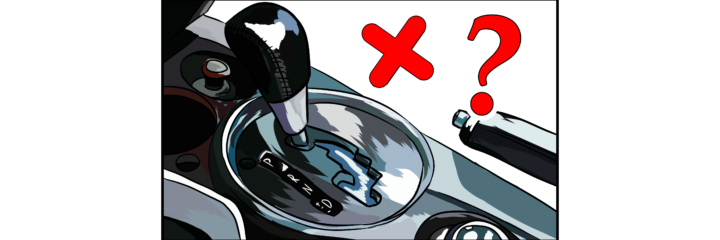Is your car taking longer than it should to shift gears from park to drive? Perhaps there are times when it feels like the car is about to shift gears on its own? If your car delays in shifting gears or doesn’t do so completely, it’s a sure sign of failing transmission.
Your vehicle’s transmission is a vital part of your car as it ensures the power from the engine gets to the wheels. If you’re experiencing a lapse in gear-shifting in your car, below are the four most common factors causing that:
Bad Automatic Transmission Fluid
Automatic cars operate on the principle of fluid dynamics for optimal operation and safety. The Automatic Transmission Fluid provides the friction needed by the transmission clutches and bands to shift gears. It’s important to change the transmission fluid at the recommended intervals as not doing so will thin out the transmission fluid, making it prone to dirt. Dirty transmission fluid will obstruct the smooth operation of the gears.
Malfunctioning Shift Lock Release
Automatic cars have shift locks that prevent the car from accidentally shifting gears until a driver is present and the engine is started. The Shift lock mechanism comes with a button that releases the lock when depressed. It allows the driver to switch and lock the gear selector into the desired automatic transmission option when the ignition is turned on. A malfunctioning Shift lock could get stuck and fail to properly switch the gear selector from park to drive.
Damaged Shift Linkage or Shift Selector Cable
Shift Selector Cable, also known as Shifter Linkage communicates the change in gears. If your selector has difficulty identifying the right gear, you either have a broken or damaged shifter linkage.
There are noticeable symptoms of a broken shifter linkage, including a delayed shutdown. Your car won’t turn off until after several stretched and forced attempts. When this happens, always put the gear locked in neutral or parked. You would be putting your life and vehicle at risk if you hold out on fixing a faulty gear selector.
Low Transmission Fluid
Obviously, transmission fluid is very important in automatic transmission vehicles. It serves as a coolant for the transmission’s internal parts. Let me digress a bit to remind us that coolants are not the same as transmission fluids, even if transmission fluids do act as coolants.
Coolants cool your vehicle’s engine; transmission fluids, on the other hand, have no business with the engine. Coolants are mixed with water before they are introduced into the car. Transmission fluids, on the other hand, are mixed with nothing before they are introduced in the car to lubricate and cool the transmission.
It is also responsible for smooth shifting from one gear to another. Low Transmission fluid will make it difficult or impossible for your automatic car to shift gears. There’s also the chance of transmission fluid leakage contributing to the gear shifting problem. If you are dealing with a leak, you should have your car brought in at your local automobile mechanic workshop for servicing.
Wrapping Up
Transmission problems are just as inconvenient as engine problems. It’s like your car is crippled, with no stimulation of the muscles and bones. You may be able to fire up your vehicle, but driving is a near-impossible task if you can’t shift gears.
The four issues we addressed above gives you an idea of what you might be dealing with if your automatic car is having trouble shifting gears. I recommend you enlist the services of a certified automobile technician to fix the problem so you can get back on the road, safely.


